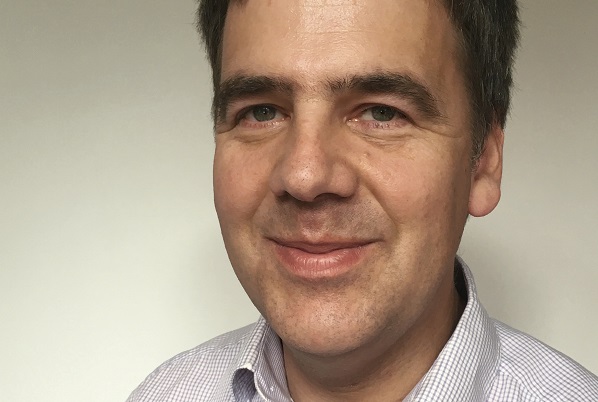Prof. Tobias Kramer is an expert on the smallest things. Here at the JKU, he is currently working on putting together a department for quantum dynamics and he is on the trail of comets.

What is your area of research?
Prof. Tobias Kramer: My area of expertise is theoretical physics.
What do you find particularly fascinating about this area?
Prof. Tobias Kramer: I find the transition between classical and quantum mechanical dynamics as well as the universal character of the underlying mathematical structures fascinating. In this regard, we can also apply our computational methods pertaining to electron dispersion in the smallest of semiconductor structures to, for example, tsunami waves in our oceans, learn how comet tails are formed in the solar system, and the way matter is distributed in the universe.
Why did you choose to come to the JKU?
Prof. Tobias Kramer: I am excited about creating a new Department of Quantum and Classical Dynamics here at the JKU. Past visits to Linz also included interesting and inspiring scientific and academic discussions with colleagues at the department. Last but not least, the university’s and Linz's ties to Johannes Kepler hold a strong appeal.
Why is this research even necessary, meaning how will it improve our lives?
Prof. Tobias Kramer: While the period between theory and real-world applications can take some time, some experiments show great potential early on, particularly in the underlying effects. To understand and provide precise analysis, theoretical physics requires precise calculations and scalable algorithms. One example is applying quantum dynamics to future quantum computers, or using the enormous computing power that graphics cards have in an effort to model energy transfer as observed during the process of photosynthesis.
Why should students take your classes?
Prof. Tobias Kramer: As a student, I not only always wanted course instructors who were able explain things well, but instructors who could also provide insight and establish correlations to current research and new methods, thereby encouraging students to conduct their own research. I hope to pass this spark on to eager and curious students and, starting in Linz, travel the road of discovery in physics together.
What are you currently working on?
Prof. Tobias Kramer: At the moment, I am focusing on the Churyumov-Gerasimenko comet and how its orbital deviation can result in drawing conclusions about the amount of ejected water. We are analyzing measurement data obtained from the Rosetta mission and calculating the comet's orbit, including relativistic deviations, within just a few kilometers.
What are your hobbies?
Prof. Tobias Kramer: In addition to astronomy using star and solar telescopes, I enjoy exploring the outdoors and I enjoy cultural events. I look forward to discovering the rich and diverse program of events in art and music in Linz.
What else do you want to do or achieve in your life?
Prof. Tobias Kramer: Interestingly, you never know in advance what research findings will bring about. One day, I would love to experience a truly clear, starry night.
About Tobias Kramer
Tobias Kramer studied physics at the University of Tübingen, the University of Colorado at Boulder, and at the Technical University of Munich, where he earned his doctorate in 2003 in the theory of matter wave dispersion. Afterwards, he conducted research at the UNAM (Mexico City) and at Harvard University (USA). At the University of Regensburg, he and his research group used graphics cards to calculate the dynamics after light excitation in photosynthetic molecules and the dispersion of electrons in semiconductors. His research on quantum dynamics in Berlin and in the USA was funded as part of the Heisenberg Program (German Research Foundation). Prior to his appointment at the JKU, he led a supercomputing research group at the Zuse Institute Berlin, focusing on dynamics in complex materials.








